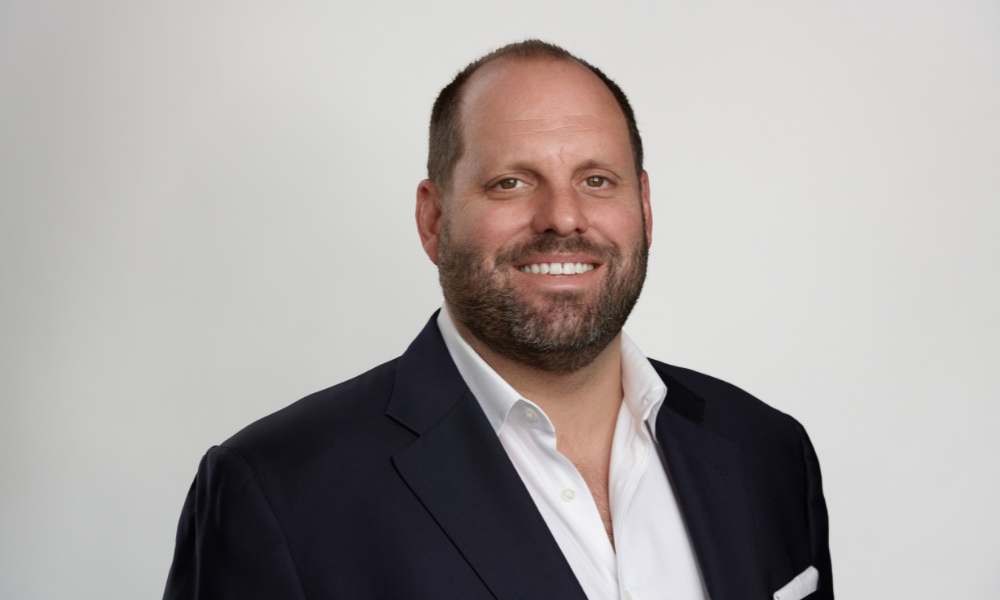Top commercial lender is encouraging investors with floating-rate loans to refinance

This article was produced in partnership with Liberty SBF
Karen Surca of Mortgage Professional America sat down with Alex Cohen (pictured), CEO of Liberty SBF, on the heels of the Consumer Price Index increase announcement to discuss the need for commercial investors to refinance into low fixed-rate mortgage loans in anticipation of interest rate increases in the new year.
One indicator that helps to predict the mortgage narrative is the consumer price index (CPI). Acting as a financial barometer of the inflationary climate, commercial mortgage lenders like to keep their eye on any changes to this inflationary measure.
With changes to the CPI, changes to lending rates will likely follow.
This year many in the commercial mortgage sector are in for a shock. At 6.8%, the CPI annualized increase represents its highest jump since 1982.
The lending goalposts are already moving to accommodate the almost certain rate increases predicted in 2022 based largely on this inflationary index.
Along with the CPI increase, commercial lenders are bracing for anticipated changes to the overnight rate dictated by the Federal Reserve. Any change in the overnight lending rate will directly impact floating rates on all commercial loan arrangements.
There are other inflationary pressures at play that are causing a domino effect. Inflationary indicators today lead to rate changes down the mortgage road.
Liberty SBF and many US-based commercial lenders are waking up to the CPI news with the realization that it is more than likely that the historically low rates that we have seen up until now will not stay this low forever.
As a result, Alex Cohen, CEO of Liberty SBF, is of the view that steps should be taken in the short term to help buffer clients against any potential new year mortgage rate increases fuelled by converging inflationary factors.
“I think that the inflationary pressures we face are very timely. The number that just came out is certainly a big one. We still must think that we are at the peak of the supply chain disruption. The costs of goods in the US are going up and the energy prices have gone up too,” Cohen pointed out.
While the CPI has been influenced by unique supply chain disruptions including backups at major US ports, the supply issues need to be corrected before there is any relief. Cohen predicts that we will not see this happen until well into 2022.
Lending Solutions
Providing possible answers, Liberty SBF is in the unique position of being able to work with the Government-sponsored Small Business Association (SBA), which means the lender can use this partnership to offer flexible loan options when floating rates start to rise.
Cohen and Liberty SBF are encouraging borrowers and investors to switch to Government-sponsored SBA fixed-rate loan options now, ahead of the predicted new year rate hikes. To achieve this seamlessly, Liberty SBF has set up a team to work with commercial real estate investors when refinancing into these low fixed-rate mortgage options.
“We are identifying borrowers now who can refinance when we are at the bottom of the rate cycle. We need to take advantage of this opportunity before the rates go up,” Cohen explained.
He went on to outline that “the SBA subsidizes two types of loan programs. One is called 7a and the other is called the 504. A lot of borrowers use 7a loans which are floating-rate loan options to build properties and, until recently, didn’t have the option for refinancing because they used a subsidized high-leverage loan.”
That was then and this is now. Cohen pointed out that, thanks to a recently passed Government rule change, commercial investors and real estate borrowers can now “refinance SBA debt into SBA debt”.
Cohen is excited about what this recent lending announcement represents for Liberty SBF and its commercial clients.
“We are reaching out to borrowers who currently have these floating rate SBA loans backed by real estate and providing them with some real options,” he said. “They can now refinance into a low fixed rate 504 option. We can secure for them a lower rate and if there is significant equity in their property, then a cash-out is typically on the table.”
This is welcome news for some of the clients that Liberty SBF works with that have built up considerable equity in their existing high-leverage loans.
“We are typically targeting borrowers who have been in their existing mortgages for three-plus years. These clients are successfully executing their construction plan and have completed a lease plan, and this builds significant equity value,” Cohen said.
New year commercial prospects
Despite recent financial indicators, Cohen continues to remain cautiously optimistic about commercial lending prospects leading into 2022. Other factors enter the mortgage game plan that go beyond anticipated rate changes and inflationary predictors.
“We are still seeing major rent growth moving into 2022 and demand for multifamily and single-family residential construction. We believe that the commercial construction market will remain strong,” Cohen predicted.
Read more: US mortgage rates reverse course as inflation rises
“Inflation is not the only input. We are still at all-time low rates and supply and demand factors are at play. We are very optimistic about the next couple of years. The macroeconomic shift may have caused folks to get a little bit more disciplined. If the market takes a disciplined approach, then there is certainly a lot of value yet to be created over the next two or three years.”
Alex Cohen is co-founder and CEO of Liberty SBF, a nationwide commercial real estate lender. With over 18 years of relevant investment and lending experience, Alex previously worked in fixed income trading and portfolio management at M&T Bank, where he helped manage the bank’s multibillion-dollar discretionary asset portfolio of commercial mortgage-related securities. He also has experience in middle-market private equity including hospitality-focused investments.



